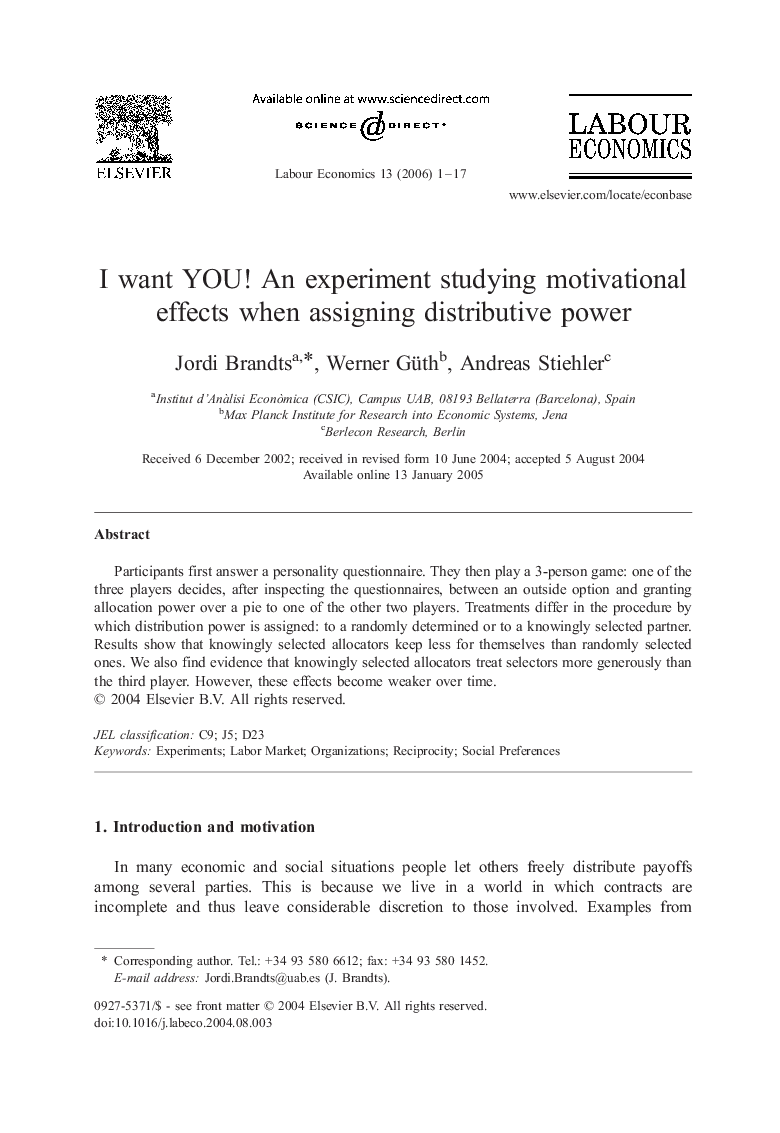| Article ID | Journal | Published Year | Pages | File Type |
|---|---|---|---|---|
| 972540 | Labour Economics | 2006 | 17 Pages |
Abstract
Participants first answer a personality questionnaire. They then play a 3-person game: one of the three players decides, after inspecting the questionnaires, between an outside option and granting allocation power over a pie to one of the other two players. Treatments differ in the procedure by which distribution power is assigned: to a randomly determined or to a knowingly selected partner. Results show that knowingly selected allocators keep less for themselves than randomly selected ones. We also find evidence that knowingly selected allocators treat selectors more generously than the third player. However, these effects become weaker over time.
Related Topics
Social Sciences and Humanities
Economics, Econometrics and Finance
Economics and Econometrics
Authors
Jordi Brandts, Werner Güth, Andreas Stiehler,
